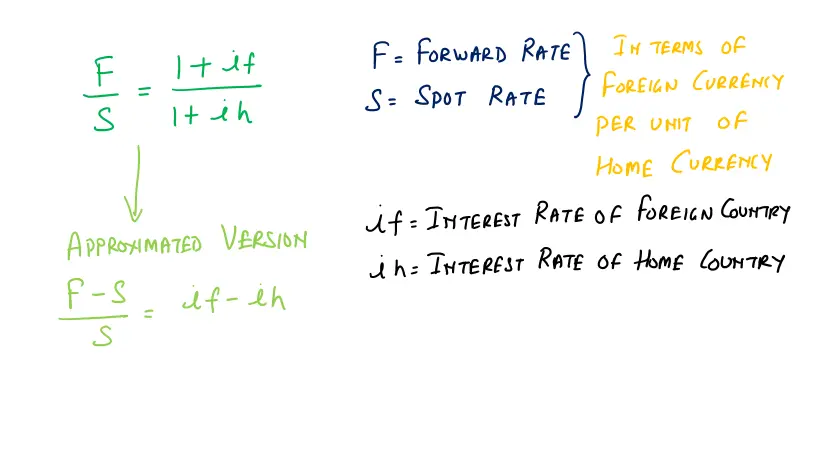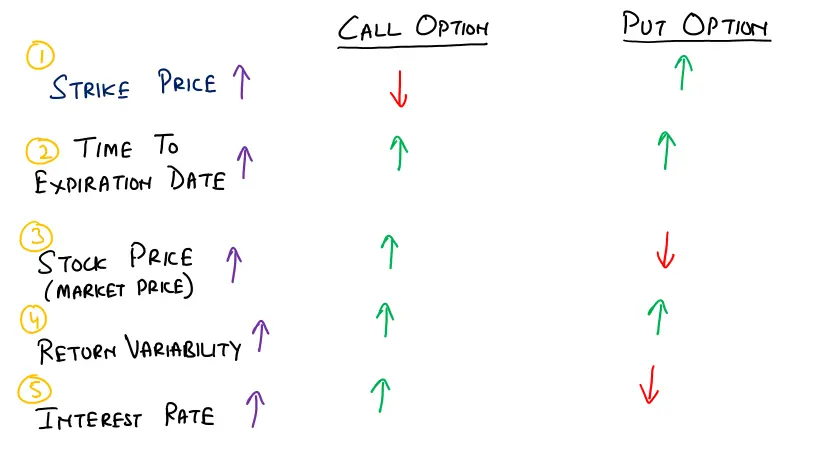Syllabus of UGC NET in Commerce
This page will give you complete information on the syllabus of the Commerce subject for UGC NET in Commerce. The syllabus for Commerce (Code 08) was last updated by the UGC in Jan 2019 and since then the syllabus has been same.
The syllabus of the Commerce subject has been sub-divided into two papers, Paper 1 and Paper 2. There are 50 questions in Paper 1 and 100 questions are in Paper 2. Each question is of equal marks and there is no negative marking. Thus, these total of 150 questions are to be attempted in 3 hours, without any break between two papers.
Each of these two papers further has 10 units of syllabus. You can also download the pdf files of the syllabus for commerce subject. The syllabus of Paper 2 of UGC NET in Commerce is given below. The link to the syllabus of Paper 1 is also given.
You may also check other data points about UGC NET in Commerce like Previous Years Question Papers with detailed Answers, Cut off Analysis of last few years, Eligibility, Coaching Classes, Study Material, How to Start Preparation. Still, if you have something else on your mind, you may connect with our team. We will do our best to support you in your preparation for UGC NET in Commerce.
Syllabus of Paper 2- UGC NET in Commerce
After a period of more than 10 years, the UGC has changed syllabus of NET in Commerce, w.e.f. June 2019 exam. The notification of change of syllabus was published on 6th Jan 2019. There has been no change in the syllabus since Jan 2019. The syllabus of UGC NET in Commerce is sub-divided into 10 units.
- Concepts and elements of business environment: Economic environment- Economic systems, Economic policies (Monetary and fiscal policies);
- Political environment Role of government in business;
- Legal environment- Consumer Protection Act, FEMA;
- Socio-cultural factors and their influence on business;
- Corporate Social Responsibility (CSR)
- Scope and importance of international business; Globalization and its drivers;
- Modes of entry into international business,
- Theories of international trade; Government intervention in international trade; Tariff and non-tariff barriers; Trade creation and diversion effects;
- India’s foreign trade policy, Balance of payments (BOP): Importance and components of BOP
- Foreign direct investment (FDI) and Foreign portfolio investment (FPI); Types of FDI, Costs and benefits of FDI to home and host countries; Trends in FDI; India’s FDI policy
- Regional Economic Integration, Levels of Regional Economic Integration;
- Regional Trade Agreements: European Union (EU), ASEAN, SAARC, NAFTA
- International Economic institutions IMF, World Bank, UNCTAD,
- World Trade Organisation (WTO): Functions and objectives of WTO; Agriculture Agreement; GATS; TRIPS; TRIMS
- Basic accounting principles; concepts and postulates, Indian Accounting Standards and IFRS
- Partnership Accounts: Admission, Retirement, Death, Dissolution and Insolvency of partnership firms
- Corporate Accounting: Issue, forfeiture and reissue of shares;
- Liquidation of companies;
- Acquisition, merger, amalgamation and reconstruction of companies
- Holding company accounts
- Cost and Management Accounting: Marginal costing and Break-even analysis;
- Standard costing; Budgetary control; Process costing; Activity Based Costing (ABC);
- Costing for decision-making; Life cycle costing, Target costing, Kaizen costing and JIT
- Financial Statements Analysis: Ratio analysis; Funds flow Analysis; Cash flow Analysis
- Human Resources Accounting; Inflation Accounting; Environmental Accounting
- Auditing: Independent financial audit; Vouching; Verification ad valuation of assets and liabilities; Audit of financial statements and audit report; Cost audit
- Recent Trends in Auditing: Management audit; Energy audit; Environment audit; Systems audit; Safety audit
- Meaning and scope of business economics, Objectives of business firms
- Demand analysis: Law of demand; Elasticity of demand and its measurement; Relationship between AR and MR
- Consumer behavior: Utility analysis; Indifference curve analysis
- Law of Variable Proportions: Law of Returns to Scale
- Theory of cost: Short-run and long-run cost curves
- Price determination under different market forms: Perfect competition; Monopolistic competition; Oligopoly- Price leadership model; Monopoly; Price discrimination
- Pricing strategies: Price skimming; Price penetration; Peak load pricing
- Scope and sources of finance;
- Lease financing
- Cost of capital
- Time value of money,
- Risk and return analysis;
- Capital structure
- Capital budgeting decisions: Conventional and scientific techniques of capital budgeting analysis
- Working capital management;
- Dividend decision: Theories and policies
- Asset securitization
- International monetary system, International financial markets and instruments: Euro currency; GDRs; ADRs, International arbitrage; Multinational capital budgeting, Foreign exchange market; Exchange rate risk and hedging techniques
- Measures of central tendency, Measures of dispersion, Measures of skewness
- Correlation and regression of two variables
- Probability: Approaches to probability; Bayes’ theorem
- Probability distributions: Binomial, poisson and normal distributions
- Research: Concept and types; Research designs, Data: Collection and classification of data, Sampling and estimation: Concepts; Methods of sampling – probability and nonprobability methods; Sampling distribution; Central limit theorem; Standard error; Statistical estimation
- Hypothesis testing: z-test; t-test;
- ANOVA;
- Chi–square test;
- Mann-Whitney test (Utest); Kruskal-Wallis test (H-test); Rank correlation test
- Report writing
- Principles and functions of management
- Organization structure: Formal and informal organizations; Span of control, Responsibility and authority: Delegation of authority and decentralization
- Motivation
- Leadership: Concept and theories
- Corporate governance and business ethics
- Human resource management: Concept, role and functions of HRM
- Human resource planning; Job evaluation;
- Recruitment and selection;
- Training and development; Succession planning
- Compensation management: Incentives and fringe benefits, Performance appraisal including 360 degree performance appraisal
- Collective bargaining and workers’ participation in management
- Personality: Perception; Attitudes; Emotions;
- Group dynamics;
- Power and politics;
- Conflict and negotiation;
- Stress management
- Organizational Culture
- Organizational development
- Organizational change
- Overview of Indian financial system, Types of banks: Commercial banks; Regional Rural Banks (RRBs); Foreign banks; Cooperative banks
- Reserve Bank of India: Functions; Role and monetary policy management
- Banking sector reforms in India: Basel norms; Risk management; NPA management, Financial sector reforms including financial inclusion
- Financial markets: Money market; Capital market; Government securities market
- Financial Institutions: Development Finance Institutions (DFIs); Non-Banking
- Financial Companies (NBFCs); Mutual Funds; Pension Funds
- Financial Regulators in India (other than RBI, IRDA)
- Digitisation of banking and other financial services: Internet banking; mobile banking; Digital payments systems
- Insurance: Types of insurance- Life and Non-life insurance; Risk classification and management; Factors limiting the insurability of risk; Re-insurance; Regulatory framework of insurance- IRDA and its role
- Marketing: Concept and approaches; Marketing channels; Marketing mix; Strategic marketing planning;
- Market segmentation, targeting and positioning
- Product decisions: Concept; Product line; Product mix decisions; Product life cycle; New product development
- Pricing decisions: Factors affecting price determination; Pricing policies and strategies
- Promotion decisions: Role of promotion in marketing; Promotion methods –
- Advertising; Personal selling; Publicity; Sales promotion tools and techniques;
- Promotion mix
- Distribution decisions: Channels of distribution; Channel management
- Consumer Behaviour; Consumer buying process; factors influencing consumer buying decisions
- Service marketing
- Trends in marketing: Social marketing; Online marketing; Green marketing; Direct marketing; Rural marketing; CRM
- Logistics Management
- Indian Contract Act, 1872: Elements of a valid contract; Capacity of parties; Free consent; Discharge of a contract; Breach of contract and remedies against breach; Quasi contracts; Special contracts: Contracts of indemnity and guarantee; contracts of bailment and pledge; Contracts of agency
- Sale of Goods Act, 1930: Sale and agreement to sell; Doctrine of Caveat Emptor; Rights of unpaid seller and rights of buyer
- Negotiable Instruments Act, 1881: Types of negotiable instruments; Negotiation and assignment; Dishonour and discharge of negotiable instruments
- The Companies Act, 2013: Nature and kinds of companies; Company formation; Management, meetings and winding up of a joint stock company
- Limited Liability Partnership: Structure and procedure of formation of LLP in India
- The Competition Act, 2002: Objectives and main provisions
- The Information Technology Act, 2000: Objectives and main provisions; Cyber crimes and penalties
- The RTI Act, 2005: Objectives and main provisions
- Intellectual Property Rights (IPRs) : Patents, trademarks and copyrights; Emerging issues in intellectual property
- Goods and Services Tax (GST): Objectives and main provisions; Benefits of GST; Implementation mechanism; Working of dual GST
- Income-tax: Basic concepts; Residential status and tax incidence; Exempted incomes; Agricultural income; Computation of taxable income under various heads; Deductions from Gross total income; Assessment of Individuals; Clubbing of incomes
- International Taxation: Double taxation and its avoidance mechanism; Transfer pricing
- Corporate Tax Planning: Concepts and significance of corporate tax planning; Tax avoidance versus tax evasion; Techniques of corporate tax planning; Tax considerations in specific business situations: Make or buy decisions; Own or lease an asset; Retain; Renewal or replacement of asset; Shut down or continue operations
- Deduction and collection of tax at source; Advance payment of tax; E-filing of income-tax returns
Depend Completely Upon us
From Start To Finish
Human Peritus is one stop solution for everything, which you need to crack UGC NET in Commerce subject (code 08).
- Specializes in Commerce subject
- 1000s of students cracked UGC NET since 2011
- Most trusted guide during preparation journey

Let us hear from success stories
Over last few years, hundreds of students have cracked UGC NET in Commerce with Human Peritus. We have interviewed some of them for you. Obviously they may speak nice words about Human Peritus. But, we have something else in mind, while advising you to watch these toppers.
The students have shared interesting insights about preparation strategy. All of them are from different backgrounds. You will find that your story is related to many of them. Some are working professionals, some are busy mothers, some are second year students, some are weak in Paper 1, others in Paper 2, some are bored with corporate jobs, while some others are scared of Accounting, others do not like OB theories. Hear them to understand, how they did it. (Keep scrolling right)
What Our Students Say
Sheetal Rajput
Hello team This is to thank you people for helping me out for the last minute preparation i did for the NTA NET-JRF exam for COMMERCE conducted in June 2019. I took admission in PhD in DU last year, so had to earn JRF for pursuing it more smoothly. a big thanks to the team of Human Peritus. You guys are doing an amazing job. Keep it up. More success to you team. ☺️
Puja Chakraborty
A big heartfelt thanks to the Human peritus Team for their wonderful support & guidance throughout the period, Finally I cracked the NET for commerce after taking HumanPeritus study Material. I’m very happy and thankful to the entire team of Human Peritus.
Priya Nangia
I have taken study material of commerce from human peritus for December’19, And I just wanted to inform and thank human peritus as I cleared JRF in single attempt. I will surely recommend your study material to my fellows.
Eligibility
Understand the recent major changes in the eligibility for both PG students and 4 Years Degree students for UGC NET…..
Exam Pattern
Pattern of Paper, number of questions, marking scheme, negative marketing etc for UGC NET in Commerce exam…..
Age Limit
Age Limit for various categories in UGC NET, as notified since June 2024 …..
Syllabus – Paper 1
Check out detailed Syllabus of Paper 1 of UGC NET, as prescribed by the UGC NET …..
Previous Years’ Papers- Paper 1
Download All Previous Years Question Papers (PYQs) from 2009 to 2024, for Paper 1 of UGC NET, with Answer Key …..
Anything else
Get in Touch with Our Team at Human Peritus and we will do our best to support you …..
About Us
Human Peritus specializes in Management and Commerce. Thousands of students have cracked UGC NET with Human Peritus since 2011.
Phone: 9717781110
Email: contact@humanperitus.com
Address: Human Peritus, Floor 5, Building C, Unitech Cyber Park, Gurgaon, 122002
Get in touch, if you want to schedule a face to face meeting with faculty in our Gurgaon office.
Exams We Cover
- Management (Code 17) - UGC NET
- Commerce (Code 08)- UGC NET
- HRM & Labour Welfare Subject (Code 55)- UGC NET
- UGC NET Paper 1
- Assistant Professor exams
- Marketing Officer exams for Banks and PSUs
- HR Officer exams for Banks and PSUs
- UPSC Civil Services- Management Optional
- UPSC Prelims- CSAT
- UPSC RTs- ALC, APFC, EPFO EO/AOI, Admin Officer, store Officer, DRDO, ESIC DD




